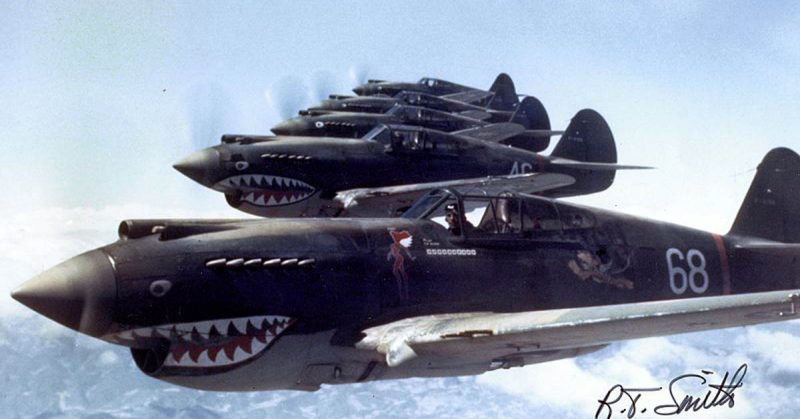When the US entered WWII, many believed they’d lose because Japanese victories kept piling up at America’s expense. Historians claim that the Battle of Midway in June 1942 was the turning point that shifted the war in America’s favor, but records show that it started well before that – in China.
It all began with the Second Sino-Japanese War. Japan had been chipping away at China for a while, but in 1937, it launched a full-scale assault that included the genocide at Nanking.
China’s warring factions united but realized that the League of Nations was useless. Britain and the rest of Europe were distracted by Germany, while Russia was also busy chipping away at China.
So they turned to America. Officially neutral, America condemned Japan but refused to get involved. Nor did it want to risk trade relations, because Japan bought most of its goods from the US.
There was only one thing to do – hire Claire Lee Chennault, a retired US Army Air Corps colonel. China was poor, technologically backward, and what modern weaponry it had wasn’t enough. Still, Chennault was determined to help, and that made a difference.
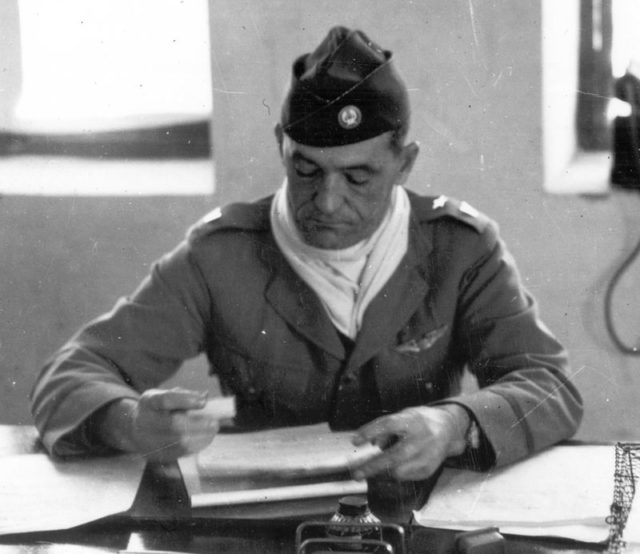
Because on December 23rd, 1940 President Franklin D. Roosevelt agreed that China needed help… unofficially, that is. Officially, America was a neutral country that never got involved in foreign wars.
So on April 15th, 1941, reservists of the US Army, Air Force, and Navy were “encouraged” to resign their posts to work as accountants, technical specialists, and engineers – even though many had never gone to college. Then they made their way to the 1st American Volunteer Group… in Burma.
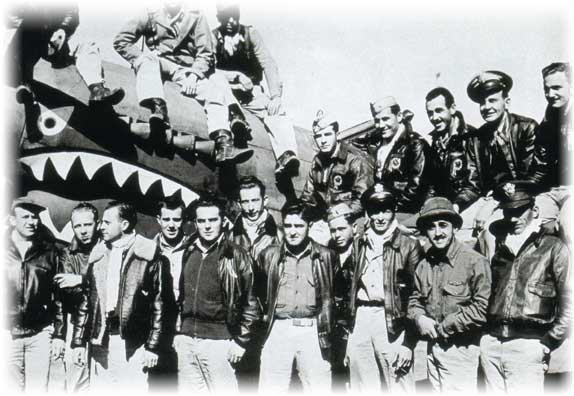
To ensure that nothing led back to them, the US government worked with the Central Aircraft Manufacturing Company (CAMCO) – an American firm based in Loiwing, China. Remarkably, Loiwing happens to be right next to the Burmese border.
And thus was born the Flying Tigers – an air squadron created to fight Japan even before the bombing of Pearl Harbor. These protected the Burma Road (China’s main supply route) and Free China.
In the event they were downed, each pilot was given a Chinese-English phrasebook called a “pointy-talkie” and a “blood chit” – a document urging everyone to help them.
The Flying Tigers were able to stop the Japanese from bombing the city of Kunming and several others. So while the American fight in the Pacific Theater didn’t start out well, things were different in China.
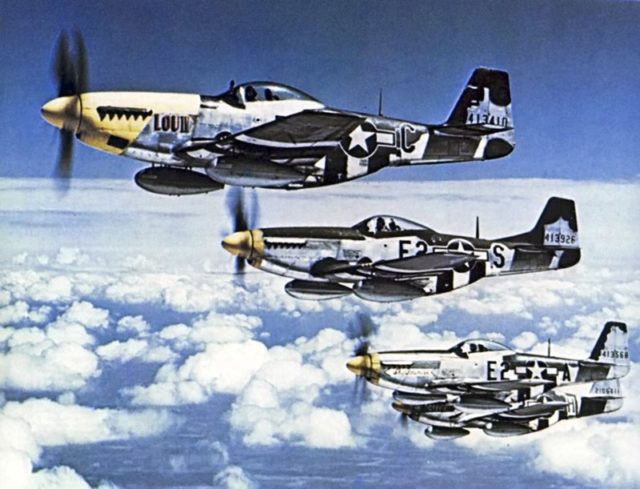
North American P-51 Mustangs.
Among these Flying Tigers was Glen Beneda who was born in McCook, Nebraska on January 6th, 1924. Turning 18 a mere 30 days after the bombing of Pearl Harbor, he was a freshman in college when he dropped out to join the Army Air Corps in March 1942.
After flight training, he was sent to China in May of the following year. Assigned to the 76th Squadron under the 23rd Fighter Group of the 14th Air Force, he made several kills and downed a few Japanese planes.
Despite this, he had very little to do with the Chinese. He was fighting for his country, after all, and if it had to be done in China, then so be it. That all changed on May 6th, 1944 when the 14th sent a large squadron to take out the Japanese base in Hankou, Hubei Province.
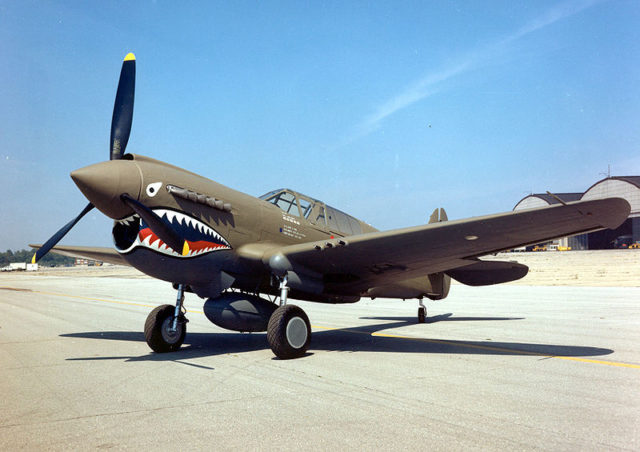
Glen was in a P-51 Mustang providing escort to several bombers and P-40E Warhawks when the Japanese threw 25 to 30 planes at them. Thanks to the Flying Tigers, the bombers and P-40Es were able to deliver their payloads before flying back to base in Chongqing.
Glen’s group had just shot down three planes when he positioned himself to shoot down an A6M Zero. But as he did, another attacked him from behind.
His plane on fire, he veered away and managed to bail out before it crashed. The government didn’t know that, however, so they told his family that he was dead. But good news – Glen got the Medal for Meritorious Achievement in Flight!
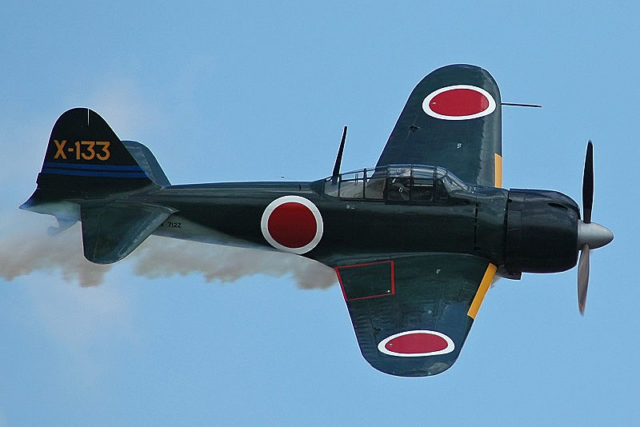
Those in Luojia Village in Jiangxi County knew better because his plane crashed in their rice fields. That was bad enough, but to see someone with yellow hair, blue eyes, and such a big nose was terrifying. Fortunately, a few of them had heard of such creatures before.
Glen was hurt and equally terrified. To show he meant no harm, he made a great show of throwing his knife away. Then he said “Meiguo” over and over – meaning “America.” Unfortunately, his tones were off, so they didn’t understand (it’s Měiguó).
So he took out a US flag but got only blank stares. Finally, he handed them his blood chit. Ah… now they understood.
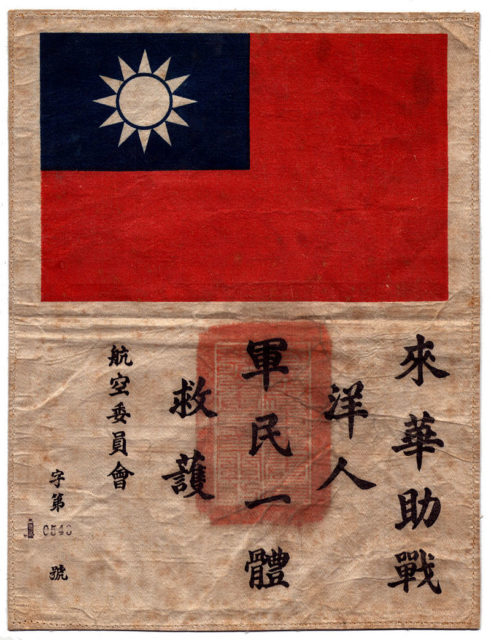
Using his pointy-talkie, he was able to communicate with Luo Fushi – the village headman who vowed to help. They carried Glen to their village where they fed him and tended to his wounds. But he still couldn’t walk.
So they built him a stretcher and began a dangerous marathon to take him back to Allied territory. They traveled at night to avoid the Japanese, and despite the severe food shortages, they did what they could.
He was picky with his food, however. So if he actually finished something, they’d give him more of it the next day – which meant that others had to go hungry. Catching on, Glen began eating everything they gave, but only half of it so that more could eat. News spread, and others lay in wait to take up the relay, while others looked for the foods he ate.
On May 29th, they finally got him to the 5th Division Headquarters of the Chinese 4th Army in Dawu County. He thanked them by beating them at every ping-pong game, so they sent him on to Chongqing.
Glen never forgot what the Chinese did for him. They never forgot about him either, because they welcomed him back in Luojia as an honored guest on September 9th, 2005.
Nor has China forgotten the Flying Tigers. Which is why some of Glen’s ashes rests in the Li Xiannian Memorial Garden – reserved only for Chinese VIPs.
